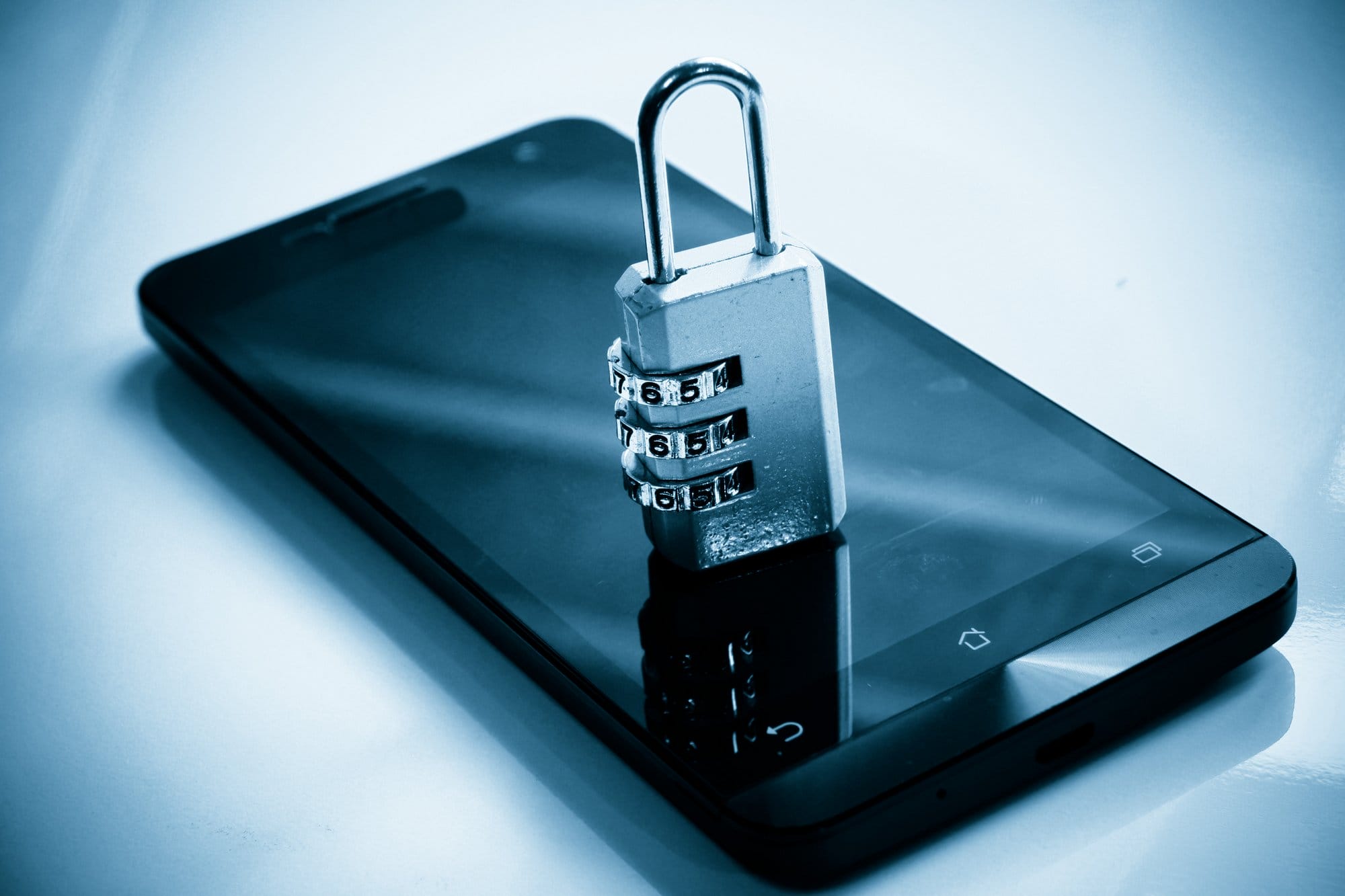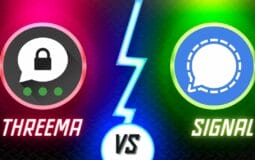Signal and Threema are two of the known as two of the most secure messaging apps.
They both use end-to-end encryption to keep your messages safe, but there are also some critical differences between them.
So, in this article, I’ll explain how each app protects your privacy and would be a better choice for you.
End-to-end encryption
What is end-to-end encryption?
End-to-end encryption uses an algorithm that only the sender and recipient can decode. It means no one else with a warrant at Threema, Signal, or law enforcement can read your messages. This is super important because it’s the best way to prevent someone from accessing your conversations.
How does encryption work?
Encryption is a way to protect data.
It’s a mathematical process that converts data into a form that cannot be read or understood by anyone except for the intended recipient. Encryption is used to secure information from third parties like hackers and law enforcement agencies who may have access to your messages and other data stored on your device or in its cloud storage service.
Why does this matter?
If someone else has access to either of these passwords, nothing stops them from reading what you’ve written! This makes things like credit card numbers, home addresses, or other personal details incredibly vulnerable if stored unencrypted.
Metadata protection
The first thing to know about metadata is that it’s not data you send but rather data that accompanies the content of your messages. For example, a message with the subject line of “I’ll be there at 7” would include two pieces of information: one being the content (“I’ll be there at 7”) and another being its subject line (“My appointment with Dr. Smith”).
This second piece is metadata, which can reveal a lot about who you are and what you’re doing—where you live, who your friends are, and where they live.
If someone has access to enough metadata about your communications (i.e., if he/she knows who all of these people are), he/she might be able to figure out where exactly in town each person lives!
Metadata is often collected through cell phone towers when mobile devices communicate with them or through internet service providers when computers communicate with their servers over the web. If someone wants to track how often two people have communicated via text message over time (and figure out how close they live together).
All they need is access to this kind of data—none of it needs to be unencrypted!
This can give hackers handy information about users’ habits.
For instance, if someone suddenly receives a massive number of calls from unknown numbers within minutes after typing something sensitive into Gmail’s search bar.
Then chances are good those calls were made by surveillance agencies trying on behalf of intelligence agencies like the NSA or CIA.
Threema vs Signal: Data ownership and hosting

One of the main differences between Threema and Signal is who owns your data. With Signal, you have no control over where or who has access to your messages. Google keeps all user data private except when government agencies order it in countries where law enforcement requests are granted without a warrant.
However, even then, Google claims that it doesn’t store any of this information on its servers unless local authorities request it, per their respective regulations.
If there’s no request made and they don’t need to comply with local laws on data retention (as they don’t fall under an EU jurisdiction), then Google retains nothing more than metadata: contact list information like phone numbers or email addresses; timestamps; message types (texts vs voice calls); locations at which conversations took place; etcetera—but not any actual contents thereof!
On the other hand, Threema uses end-to-end encryption so that only someone who receives an invitation code can decrypt messages sent via their service – making them impossible for anyone else to read!
Additionally, Threema’s servers aren’t located near those belonging to other companies like Google, which may be susceptible to being compromised by hackers due to being based outside US borders where privacy laws are laxer than here at home.”
Open-source software
Finally, open-source software is essential because it allows users to see the code behind an app. Knowing that you can check out the software and see how it works will give you peace of mind. But if you don’t have time to do that yourself, there are ways to find out if an app is an open source without digging through the code yourself:
- Check out their website. Most developers proudly state which apps are open source on their websites or in the app description.
- Look for “Open Source” in the name of your chat client (for example, Threema Open Source).
Threema vs Signal: Trust Factor
You might be wondering how you can trust a secure messaging app. Open-source software can indeed be hard to verify and understand. But some apps have gone through audits, meaning people have gone through their code line-by-line to ensure it’s secure. Threema is also open source, though any third party has never audited it. Signal’s code has been audited multiple times by both independent researchers and its employees.
Threema vs Signal: Privacy settings

Signal’s privacy settings are extensive, with options to disable the ability to see when a contact is online or make it so that they don’t see you as online unless you have an active conversation.
You can also make specific contacts appear in your contact list by default; this way, if someone sends you a message, it won’t be hidden from them just because they didn’t have your phone number saved in their address book.
Threema has no option for hiding who’s online—you can only block someone from contacting you (by switching off messaging). This may be good for those who need extra security but want less flexibility; however, if others are using Threema in your household, then there’s no way of knowing who else is available to talk on the go unless they’ve given their public key out beforehand.
Final Verdict
Threema and Signal are two of the most secure messaging apps out there, but which is better depends on your needs.
Both are end-to-end encrypted, meaning that nobody else can see your messages.
In addition, both have metadata protection to prevent surveillance agencies from mapping out who you’re talking to.
Both also have open-source software—the code is available for anyone to see and verify—and trust issues surrounding government backdoors or private companies accessing user data.
Threema has some unique features that Signal lacks:
Private Groups let you create a group chat with up to 12 participants;
Secret Chats offer self-destruct timers when sending messages;
Password Protection keeps others from seeing what’s going on with your account if they get their hands on it;
Trust Level lets you choose how much information you want to share with people outside your closest circles.
That’s all for now.
I hope this article has helped you understand the differences between Threema and Signal and their similarities.
And by the end of this post, you will be able to make a suitable choice.



